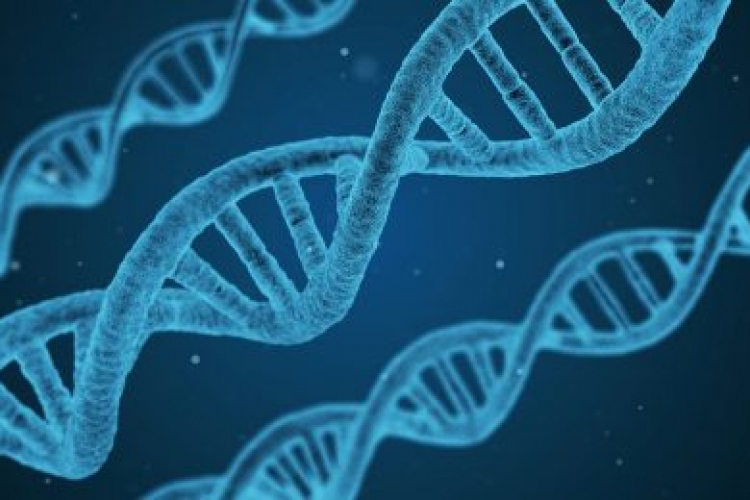DNA REGULATION BILL
The DNA Technology (Use and Application) Regulation Bill, 2018 has been introduced in India’s Parliament, with a view to creating a national DNA database for use by the police in solving crimes and identifying missing persons.
Background:
Forensic DNA profiling is of proven value in solving cases involving offences that are categorized as affecting the human body (such as murder, rape, human trafficking, or grievous hurt), and those against property (including theft, burglary, and dacoity). The aggregate incidence of such crimes in the country, as per the statistics of the National Crime Records Bureau (NCRB) for 2016, is in excess of 3 lakhs per year. Of these, only a very small proportion is being subjected to DNA testing at present. It is expected that the expanded use of this technology in these categories of cases would result not only in speedier justice delivery but also in increased conviction rates, which at present is only around 30% (NCRB Statistics for 2016).
PROVISIONS OF THE BILL
- The Bill provides for the mandatory accreditation and regulation of DNA laboratories.
- It seeks to ensure that the DNA test results are reliable.
- It also ensures that the data remain protected from misuse or abuse in terms of the privacy rights of citizens.
- The Bill's provisions will enable the cross-matching between
- persons who have been reported missing
- unidentified dead bodies
- victims in mass disasters
- The government will set up DNA data banks across India to store profiles.
- It imposes jail term of up to 3 years and a fine of up to Rs 1 lakh on those who leak the information stored in such facilities.
- These banks will maintain a national database for identification of victims, accused, suspects, undertrials, missing persons and unidentified human remains.
- The Bill creates a DNA Profiling Board that would be the final authority to -
- authorise the creation of State-level DNA databanks
- approve the methods of collection
- analyse DNA-technologies
ANALYSIS :
JUSTIFICATIONS
- The draft has introduced a new provision that explicitly prohibits the collection of any “bodily substance” from an arrested individual (for the purposes of a DNA test) without his/her consent, except if the individual is arrested for certain specific offences. However, if the consent “is refused without good cause”, and a magistrate is satisfied of the need for a DNA test, he/she can order the arrested person to give a sample.
- Samples picked up from a crime scene, belonging to those who are not offenders or suspects, would not be matched with the databases. Such DNA profiles would have to be expunged from the records on a written request from the individual concerned.
- The new Bill has also removed a provision that allowed DNA profiles in the databank to be used for “creation and maintenance of population statistics databank”.
CONCERNS RAISED
- The Bill’s proposed DNA Regulatory Board is still too powerful and insufficiently transparent or accountable.
- Information from DNA samples can reveal not just how a person looks, but also more intrusive information like their allergies, or susceptibility to diseases. As a result, there is a greater risk of information from DNA analysis getting misused.
- There are chances, however remote, that a wrong match is generated. If the DNA result is taken as the ultimate evidence, no recourse will be available to an individual who has been wrongly matched.
- Any international sharing of DNA profiles should also be covered by a privacy or data protection law, and meet international human rights standards such as — the need to restrict DNA profiling so that it uses only non-coding DNA, a commonly used international standard for one .This has been missing in the bill.
- The Bill includes provisions for the destruction of DNA samples and removal of innocent people’s DNA profiles from the database. However, these provisions are inadequate: currently, the removal of innocent people’s records is not automatic.
- There is no attempt to assess the cost effectiveness of these provisions or to estimate the database’s likely size
WAY FORWARD
- International evidence shows that the success of a DNA database is driven primarily by the number of crime scene DNA profiles loaded on to it, not by the number of DNA profiles from individuals, so proper crime scene analysis should be the top priority
- Using DNA effectively during criminal investigations requires proper crime scene examination, trained and reliable policing and proper use of expert evidence in court. Without these prerequisites, a DNA database will exacerbate rather than solve problems in the criminal justice system (false matches or misinterpretation or planting of evidence, and diverting resources).
- An independent ethics board should be set up ,to enhance the accountability to the court .
- The Board’s responsibilities for privacy protections need an independent regulator: the easiest way would be prior adoption of a privacy or data protection bill (with a role for a data protection officer). This would allow individuals some recourse if their rights were not protected, important, especially following the Supreme Court’s Right to Privacy judgment.
- More detail is also needed to specify that volunteers, who give samples to find their missing relative , must be fully informed about future storage and uses of their genetic information before they give consent.
It has also been argued that DNA tests have not led to an improvement in conviction rates in countries where it is already being followed. Hence the bill need still more scrutiny and must make sure that the privacy of an individual is not compromised as “DATA” is the need of the hour for many.
ADDITIONALINFORMATION


 IAS -2025 Prelims Combined Mains Batch - III Starts - 14-04-2024
IAS -2025 Prelims Combined Mains Batch - III Starts - 14-04-2024